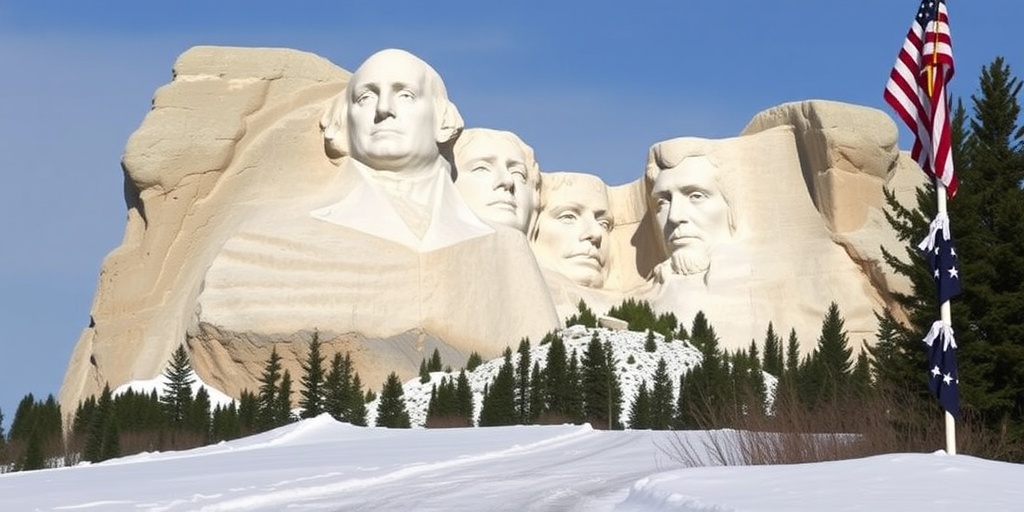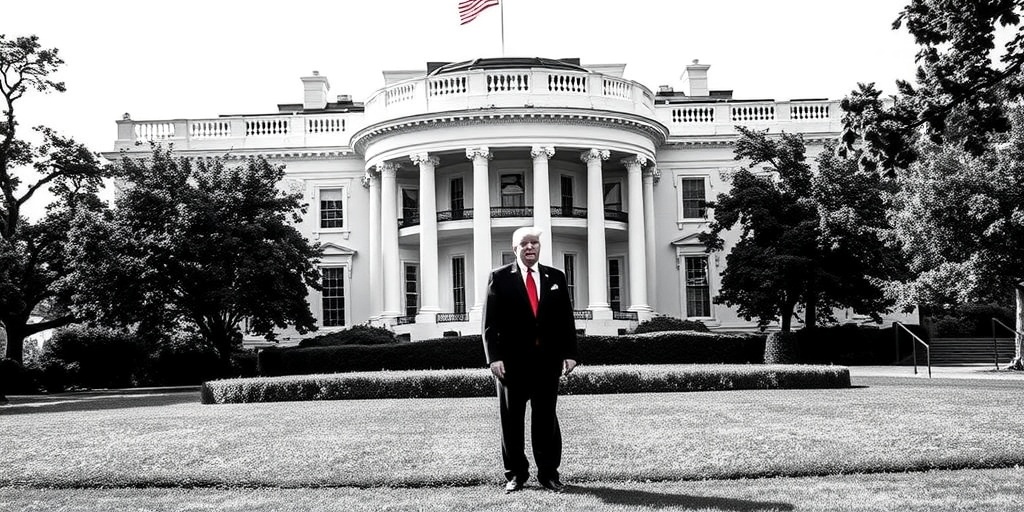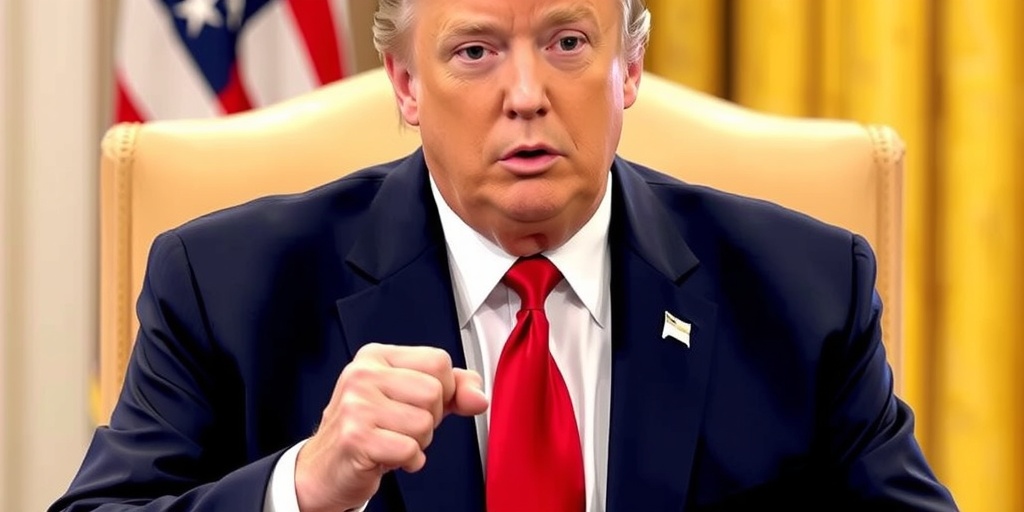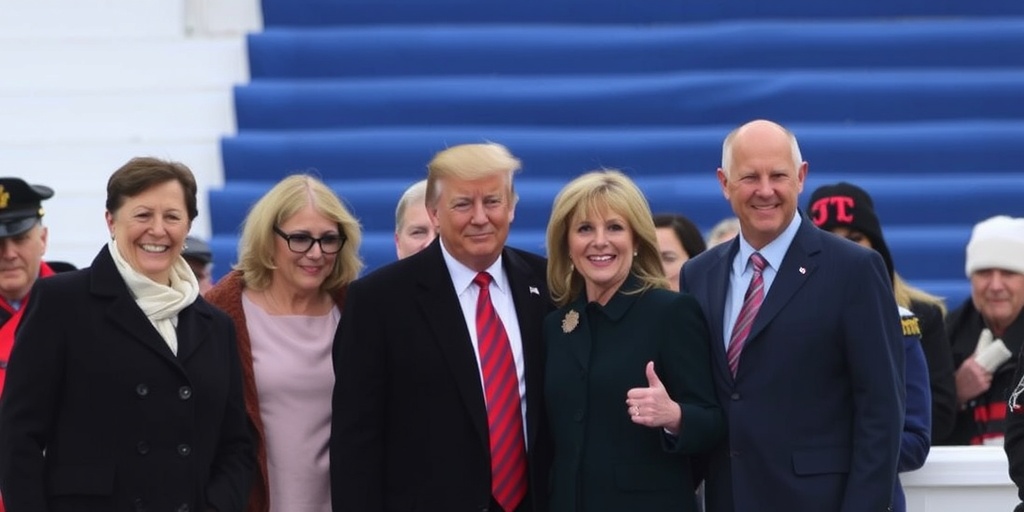Now Reading: Trump Sworn in as Oldest President Again
-
01
Trump Sworn in as Oldest President Again
Trump Sworn in as Oldest President Again

Title: The Age Factor: A Look at the Oldest and Youngest Presidents in U.S. History
When Donald J. Trump was inaugurated as the 45th president of the United States in January 2017, he made history by being the oldest person ever sworn into the office at the age of 70. However, this record did not stand for long. In January 2021, Joseph R. Biden Jr. took the oath of office at the age of 78, surpassing Trump’s record. Fast forward to Monday, and Trump reclaimed his title by being inaugurated as the 47th president at 78 years old, but with a distinction: he is five months and six days older than Biden was at the time of his inauguration.
Throughout the recent presidential election cycle, age became a significant topic of debate. President Biden, now 82, faced scrutiny about his age and ability to serve effectively. Following a lackluster debate performance last summer, there were increasing calls for him to withdraw from the race. Ultimately, Biden decided to step aside, clearing the path for Vice President Kamala Harris to emerge as the Democratic nominee. At 60, Harris is nearly two decades younger than Trump, further shaping the discussion around age in the current election landscape.
As we reflect on the age dynamics in the presidency, it’s interesting to recognize the spectrum of ages at which various presidents have entered the Oval Office. In terms of age, here’s an overview of the oldest presidents to take office.
Oldest Presidents in U.S. History:
Before Trump’s record in 2017 and Biden’s in 2021, Ronald Reagan was the oldest president to be inaugurated. He took office at 69 in January 1981, and by the end of his second term, he was 77, becoming the oldest president to leave the office. Looking further back, William Henry Harrison held the title of the oldest president upon his inauguration in 1841 at the age of 68. Tragically, Harrison passed away just 32 days into his presidency due to pneumonia, marking him as the first president to die in office and having the shortest tenure in U.S. history.
Youngest Presidents in U.S. History:
On the other end of the age spectrum, many people might believe that John F. Kennedy, inaugurated in 1961 at the age of 43, was the youngest president. However, that honor actually belongs to Theodore Roosevelt, who became president at the age of 42 in September 1901 following the assassination of William McKinley. Other relatively young presidents include Ulysses S. Grant and Bill Clinton, who were both 46 upon taking office, and Barack Obama, who was 47 at his first inauguration in 2009.
A Focus on Vice Presidents:
Turning attention to vice presidencies, JD Vance, Trump’s running mate, made headlines for becoming the nation’s youngest vice president since Richard Nixon in 1953. At just 40 years old, Vance assumed the role, while Nixon had celebrated his 40th birthday shortly before his inauguration as the vice president under Dwight D. Eisenhower. Notably, the record for the youngest vice president goes to John C. Breckinridge, who was only 36 in 1857 when he became vice president under James Buchanan.
Kamala Harris made history in 2021 as the first female vice president at the age of 56, adding another layer to the evolving dynamic of age in American leadership. Vance, now the third youngest vice president to be elected, highlights the ongoing trend of younger individuals taking on significant political roles as the average age of leadership changes.
The Oldest Living Former President:
In the context of longevity, Jimmy Carter, who served as the 39th president from 1977 to 1981, recently held the record for the longest-lived former president in U.S. history. Carter aged gracefully and remained an influential figure even after his presidency, reaching the age of 100 before he passed away in December 2023.
Carter’s presidency was marked by efforts to unite a divided nation post-Watergate, but his single term was challenged by economic difficulties and an international hostage crisis, ultimately affecting his re-election chances in 1980.
The examination of age in the presidency serves as a reminder of the shifting paradigms in American politics, where experience and vitality often collide, leading to compelling narratives and discussions among the electorate. As the nation looks toward future elections, the age of its candidates will undoubtedly remain a significant focal point in the political arena.
Stay Informed With the Latest & Most Important News
Previous Post
Next Post
Previous Post
Next Post
-
 01New technology breakthrough has everyone talking right now
01New technology breakthrough has everyone talking right now -
 02Unbelievable life hack everyone needs to try today
02Unbelievable life hack everyone needs to try today -
 03Fascinating discovery found buried deep beneath the ocean
03Fascinating discovery found buried deep beneath the ocean -
 04Man invents genius device that solves everyday problems
04Man invents genius device that solves everyday problems -
 05Shocking discovery that changes what we know forever
05Shocking discovery that changes what we know forever -
 06Internet goes wild over celebrity’s unexpected fashion choice
06Internet goes wild over celebrity’s unexpected fashion choice -
 07Rare animal sighting stuns scientists and wildlife lovers
07Rare animal sighting stuns scientists and wildlife lovers





















